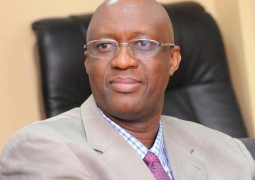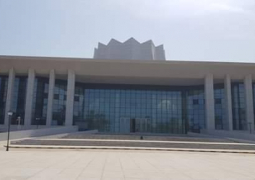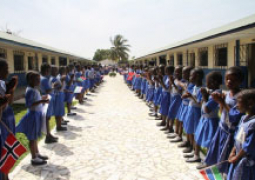President and Vice Chancellor of the International Open University (IOU), Dr. Cherno Omar Barry and Dr. Abubacarr Jallow, Principal of Gambia College, were invited by UNESCO to attend this significant forum. Both institutions are expected to soon host the UNESCO Chair for Teacher Training, Distance Learning, and Assessment, further underscoring their critical role in advancing education in The Gambia and across the continent.
The forum, which aligned with the AU Year of Education and Africa’s development blueprint Agenda 2063, attracted over 500 participants from academia, policy, and international organizations. The discussions focused on reshaping Africa’s knowledge systems, fostering interdisciplinary research, and promoting inclusive education reforms to address the continent’s pressing challenges.
Dr. Barry and Dr. Jallow played key roles in the forum’s discussions, particularly in sessions related to the future of African higher education and the integration of local knowledge systems into global research and innovation. Their participation comes as both the International Open University and Gambia College prepare to take on new leadership roles with the UNESCO Chair, which will focus on improving teacher training, expanding distance learning methodologies, and enhancing assessment strategies across Africa.
Dr. Barry commented on the significance of the event, stating, “This forum has reaffirmed The Gambia’s commitment to leading innovative educational practices. The forthcoming UNESCO Chair at IOU and Gambia College will strengthen our capacity to shape the future of education and address the specific needs of our region.”
During the three-day event, panel discussions focused on key topics, including:
- Envisaging Africa’s Future: This opening session examined Africa’s potential to lead global innovation and sustainability through its demographic and technological advancements. Speakers emphasized the importance of integrating Africa’s unique knowledge systems into global frameworks.
- AI in Research: A session on Generative AI explored how AI can boost research productivity and innovation in Africa, while ensuring inclusivity by integrating local knowledge systems and addressing ethical concerns.
- Futures of Higher Education in Africa: This panel discussed the challenges facing African universities in aligning with global agendas like Agenda 2063 and the UN 2030 Agenda, while responding to local challenges such as youth unemployment, climate change, and the digital divide.
- Endogenous Education: A key session on rethinking curricula called for the integration of African Indigenous knowledge systems into mainstream education to create more culturally relevant and inclusive learning environments.
Dr. Abubacarr Jallow underscored the importance of this partnership, noting that Gambia College has long played a critical role in teacher training across the region. “The collaboration with UNESCO will further enhance our programs, ensuring that our educators are well-equipped to address the evolving needs of The Gambia’s education system,” he said.
The forum closed with discussions on collaborative research partnerships, stressing the need for equitable and inclusive networks that empower African researchers and institutions. As The Gambia moves forward with its plans for the UNESCO Chair, the partnerships formed and the knowledge shared at this forum will play a vital role in shaping future regional educational and research strategies.
Dr. Barry and Dr. Jallow’s participation highlights The Gambia’s active role in advancing education, particularly in the fields of distance learning and teacher training. Their involvement reflects the country’s commitment to transforming Africa’s education landscape and ensuring that knowledge systems are inclusive, relevant, and globally competitive.




